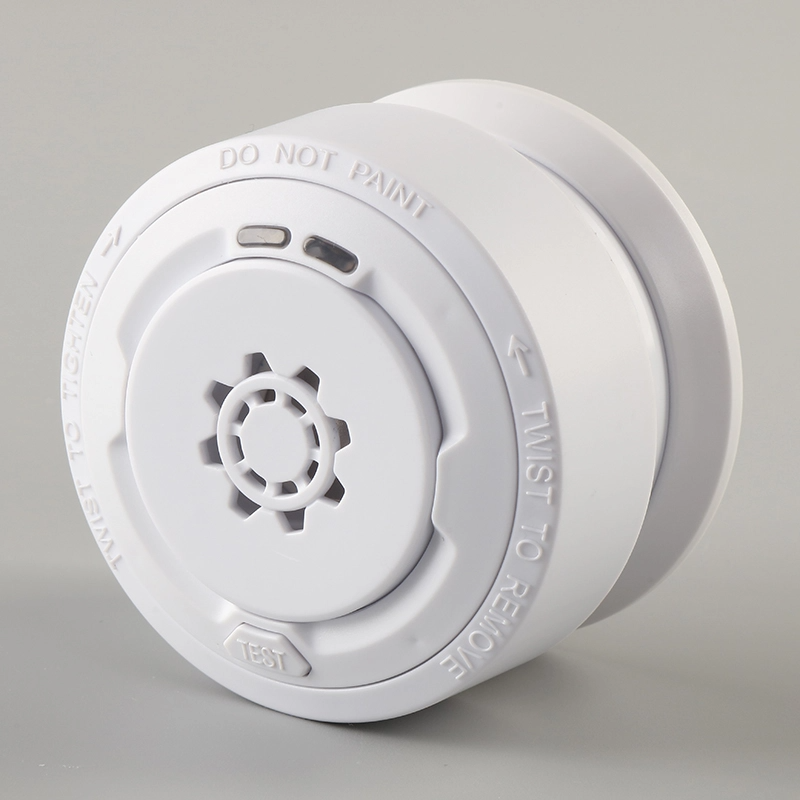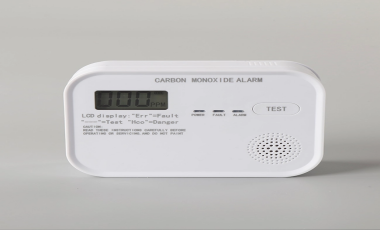Views: 0 Author: Site Editor Publish Time: 2025-03-17 Origin: Site









Did you know that nearly 3,000 deaths occur each year due to home fires? What if you could prevent such dangers before they escalate? Wondering about the difference between a fire alarm and a gas alarm? This guide will help you understand their roles, how they work, and why both are essential for protecting your home or business from both fire and gas hazards.
Fire alarms are designed to detect smoke, heat, or fire. These devices use different technologies like ionization and photoelectric sensors to identify the presence of smoke or rising temperatures. When a fire is detected, the alarm triggers a loud sound to alert occupants and enable quick evacuation.
Gas alarms, on the other hand, detect hazardous gases such as carbon monoxide, methane, and propane. They use sensors that can identify the presence of these gases, often at much lower concentrations than can be detected by humans. Once detected, the alarm sounds to warn of a possible gas leak, giving you time to act before it becomes dangerous.
| Feature | Fire Alarm | Gas Alarm |
|---|---|---|
| Purpose | Detects smoke, heat, or fire | Detects harmful gas leaks (e.g., CO, LPG) |
| Type of Hazard | Fire and smoke | Gas exposure (CO, methane, propane) |
| Detection Technology | Ionization, photoelectric sensors | Chemical sensors, catalytic sensors |
| Response Time | Quick detection of smoke and heat | Early warning for gas leaks |
| Installation Location | Typically mounted on ceilings or walls | Installed near gas sources or appliances |

While fire alarms are essential for detecting fires, gas alarms provide another layer of protection against potentially lethal gas leaks. Having both alarms ensures that you are alerted to a wider range of dangers, whether from fire or toxic gas buildup.
Knowing that both potential threats—fire and hazardous gas—are detected early allows for peace of mind, especially in environments like homes, businesses, or industrial settings. Both alarms provide early warning, which means more time to take action.
Installing both types of alarms is relatively affordable compared to the potential cost of a disaster. Fire and gas alarms are affordable safety devices that offer crucial protection for families and employees. Their low installation cost makes them a small price to pay for safety.

1. Choose the Right Alarm: Select a fire alarm and gas alarm that suit your needs. For example, choose CO detectors for homes with gas appliances.
2. Install at Proper Locations:
Fire alarms should be installed on ceilings or walls near sleeping areas.
Gas alarms should be placed near gas appliances or fuel-burning equipment.
3. Test Regularly: Test both alarms monthly to ensure proper functionality.
4. Replace Batteries Annually: Keep alarms running smoothly by changing the batteries yearly.
5. Maintain Alarms: Ensure proper maintenance by cleaning the sensors and replacing outdated models as needed.
Both fire alarms and gas alarms are crucial for protecting your home and workplace. They serve different purposes but work together to offer comprehensive safety. Installing both systems is a cost-effective way to prevent disasters and ensure peace of mind.
Test your fire alarm monthly using the test button. Replace the batteries annually and clean the alarm regularly. Regular testing ensures reliable performance in case of an emergency.
Install a gas alarm as soon as you move into a new home or after installing gas appliances. Early installation prevents potential dangers. Immediate protection reduces the risk of gas leaks.
The cost of installing fire and gas alarms varies between $20 to $200, depending on the model and features. Affordable protection can save lives and prevent costly disasters.
Please Enter Your Information
0574 62566055/62566056
+86 13245660006
+86 13081966918
13245660006
13081966918
Copyright © 2021 Ningbo Kingdun Electronic Industry Co.,Ltd.
Support by Leadong.com